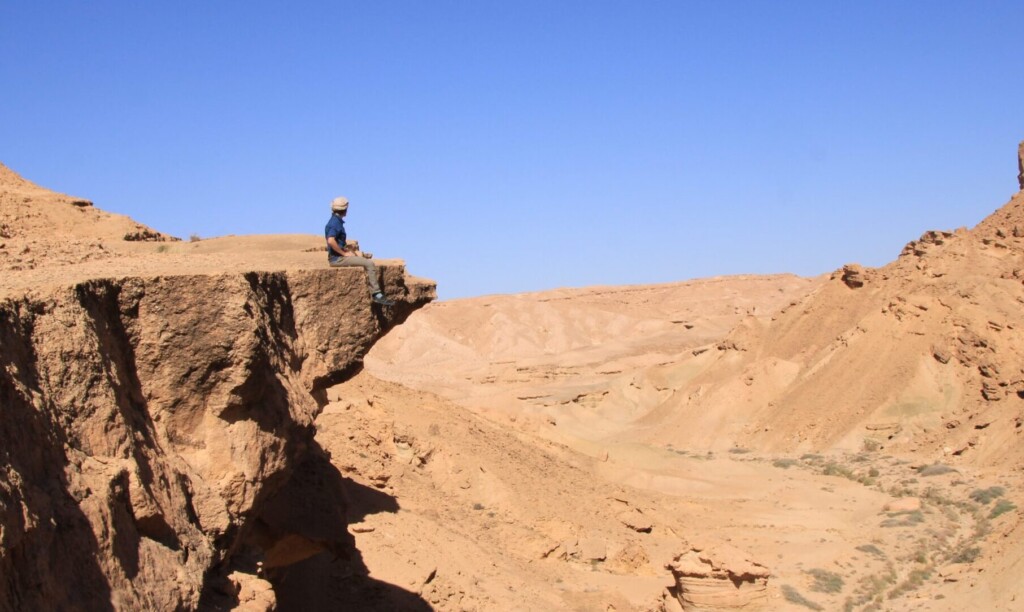Reprinted with permission from World at Large, an independent news outlet covering conflict, travel, science, conservation, and health and fitness.
As July and August come around after a hard, half-year of work, the thought may arise that you need a vacation. A team of scientists has proposed that this is actually true—and that your life may very well depend on it.
Their paper investigates how travel and tourism positively affects human health through the movement of the body into a “low entropy state”.
Entropy: a fundamental law of physics, and one rarely seen in travel literature, promotional material, or blog posts. Originating from thermodynamics, this principle describes the natural tendency of systems to move towards disorder or chaos, a process that is irreversible but can be mitigated.
A team of Chinese scientists publishing through Australia’s Edith Cowan University proposes that health is defined as a state of good order in four key systems of the body. These include the system of self-organization, self-defense, self-repair, and the anti-wear-and-tear system. If one or more of these systems are disrupted or disorganized, the others tend towards the same—in other words, a high-entropy state.
“It perfectly reflects the fundamental process from health to illness and eventually death in humans, and this law has been utilized in health science to explain human disease and aging,” says Fangli Hu, a doctoral candidate in Philosophy at Edith Cowan.
“While this fundamental process of the life course is irreversible, it can be mitigated through various measures, with tourism possibly being one of them. Tourism could induce entropy changes: positive tourism experiences, such as exposure to new stimuli, engaging in social interactions, and participating in physical activities, may help counteract entropy increase and enhance health,” she told WaL.

Stepping into the health dimension
Travel exposes the “biosociopsycho” organism to a panoply of environmental and social forces that when examined individually are generally thought to be wellness-promoting.
In the West, and America especially, health-conscious people tend to become fixated on singular aspects of healthy living, whether that’s the inclusion of a single nutrient (like omega-3 fatty acids, for example), a single exercise modality (yoga), or a single lifestyle adjustment (intermittent fasting). Travel, Hu and her authors write, exposes the organism to potentially dozens of these at the same time.
Travel usually places a human being outdoors in fresher air and sunlight. It requires them to spend a lot of time walking or any of the myriad of physical activities that travel sometimes entails like cycling, hiking, or swimming. This glut of activities typically prevents them from overeating, and exhausts them such that sleep comes on fast and easy.
All of these are vital to the self-repair, self-organization, and anti-wear-and-tear systems. On top of this template for a day of tourism, there is the constant exposure to novelty: unfamiliar streets, strange customs, novel landscapes, and a non-native environment of microorganisms.
This jolts the self-defense and self-organizational systems into focus, as novelty corresponds to increases in stress vital to a well-maintained immune system.
“Novel settings can stimulate stress responses and elevate metabolic rates, positively influencing metabolic activities and the body’s self-organizing capabilities,” the authors write in the meat of their letter, published in the Journal of Travel Research. “These contexts may also trigger an adaptive immune system response. This reaction improves the body’s ability to perceive and defend itself against external threats; put simply, the self-defense system becomes more resilient”.
“Hormones conducive to tissue repair and regeneration may be released and promote the self-healing system’s functioning. Leisurely travel activities might help alleviate chronic stress, dampen overactivation of the immune system, and encourage normal functioning of the self-defense system”.
FOR TRAVEL LOVERS: Must-Have Travel App Offers Peace of Mind, Averting Any Crisis with Real-Time Advisories and Personal Response Team
Again, the entropy concept reappears. Cells must be able to sense and adapt to their surroundings to maintain normal functioning.
“A dense interplay of physiological and environmental factors regulates cellular activities,” the authors write. “Based on cells’ sociomateriality, the environment assumes an imperative role in modulating cell responses. The environment therefore affects essential cell activities such as self-organization, repair, and regeneration”.

Exercise not required
In 2024, no one is receiving a research grant to explore how exercise affects human health, but travel-affected wellness doesn’t necessitate exercise.
“Tourism’s potential health benefits are not solely reliant on any single element,” Hu told WaL. “Naturally, the more diverse the experiences, the greater the potential for enhanced well-being. While exposure to new environments, social interactions, and physical activities each could contribute to health, it is often the combination of these factors that might produce the most substantial benefits”.
In On the Face of It: A Traveler on His World, published by WaL founder Andrew Corbley, evidence is compiled to show that stepping into a foreign landscape and cultural ecosystem could change fundamental intercommunication within the brain, such that colors become brighter, sounds sharper, and memories more vivid.
INNOVATIVE HEALTH CONCEPTS: Learning to Just Say No to Unwanted Holiday Invitations Can Benefit Your Mental Health–New Study
Could it be that when we’re traveling, we’re experiencing the world at a higher resolution and capacity because it’s unfamiliar? Does one fall into a lethargic state of cognition when interacting with the same things, people, and places every day, week after week for years and decades on end?
Chaos and disorder, arising from a high-entropy state may impede our ability to remember and fully appreciate one’s life at home, while unfamiliar surroundings cause the body’s systems to snap back into a low-entropy state characterized by resilience and awareness.
YOU MAY ALSO LIKE: Having Gratitude Linked to Lower Risk of Death Independent of Other Factors, Innovative Study Shows
Ms. Hu and her co-authors recommend that the concept of entropy increase/decrease in tourism and health be investigated with a variety of observational studies, self-report studies, and randomized controlled trials. These will help broaden and better define the relationship between travel and health, without needing to necessarily use a concept like entropy as a basis.
Who knows, American doctors may be writing prescriptions for a vacation in the not-too-distant future. WaL
We Humbly Ask For Your Support—Follow the link here to see all the ways, monetary and non-monetary.
PICTURED ABOVE: PC: Andrew Corbley ©
SHARE This News With Anyone You Know Bitten By The Travel Bug…




















